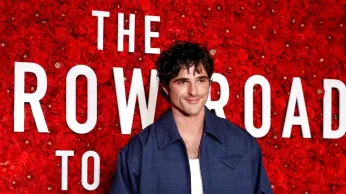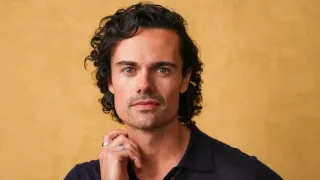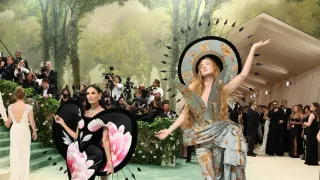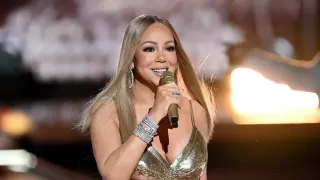
8 hours ago
Jacob Elordi and Emerald Fennell Reunite for Provocative “Wuthering Heights” Adaptation
READ TIME: 3 MIN.
Filmmaker Emerald Fennell and actor Jacob Elordi, whose previous collaboration on the visually provocative “Saltburn” garnered critical attention for its daring exploration of sexuality and power, are joining forces once again. This time, they are taking on Emily Brontë’s “Wuthering Heights” in a feature adaptation that is already making waves for its bold creative direction and inclusive approach to storytelling .
Scheduled for theatrical release in the United States on February 13, 2026, this adaptation stars Margot Robbie as Catherine Earnshaw and Jacob Elordi as Heathcliff. Both actors bring proven chemistry and a history of immersive performances to the screen, with Robbie also attached as a producer through her company LuckyChap Entertainment . The film’s production saw a heated bidding war, with Warner Bros. Pictures ultimately securing distribution rights after promising a wide theatrical release and significant marketing commitment .
While “Wuthering Heights” has been adapted numerous times, Fennell’s vision is reportedly “hyper-sexualized” and “BDSM-tinged,” an interpretation that places the turbulent, obsessive relationship between Catherine and Heathcliff within a more explicit framework of desire, dominance, and transgressive love . This creative choice aligns with Fennell’s previous work, which is noted for its unflinching exploration of taboo and power dynamics, as well as its deliberate queering of traditional narratives .
Jacob Elordi, who had reportedly planned to take a hiatus from acting before being offered the role by Fennell, is known for his willingness to take on complex, boundary-pushing roles . The choice to revisit “Wuthering Heights” through a lens informed by contemporary understandings of queerness, sexuality, and gender has drawn early interest from LGBTQ+ audiences and cultural commentators. This adaptation’s focus on the fluidity of desire and the power struggles inherent in love and obsession resonates with viewers who have long sought richer queer subtext and explicit representation in mainstream period dramas.
Fennell’s casting and production choices also reflect a commitment to challenging traditional narratives. However, the casting of Elordi—a white actor—in the role of Heathcliff, a character described in Brontë’s novel as “dark-skinned” and racially ambiguous, has sparked some controversy and important conversations about representation and authenticity in adaptation . The production has responded by emphasizing inclusive hiring in other key roles and highlighting the diversity of the supporting cast, including actors Hong Chau and Shazad Latif .
For LGBTQ+ audiences, the promise of a “hyper-sexualized” and “BDSM-tinged” adaptation of “Wuthering Heights” offers more than shock value. Brontë’s original novel is famed for its toxic, obsessive love and outsider status, themes that have long resonated with queer readers. By foregrounding sexuality and power as central to the narrative, Fennell’s adaptation creates space for interpretations that challenge heteronormative conventions and give voice to the marginalized desires that have historically been coded rather than named in classic literature .
The film’s explicit approach is likely to attract both acclaim and debate, particularly given the growing visibility of kink, BDSM, and diverse sexual identities within LGBTQ+ communities. By refusing to sanitize the source material’s darkness and instead leaning into its potential for queer and transgressive storytelling, Fennell and her collaborators position “Wuthering Heights” as a touchstone for contemporary conversations about desire, boundaries, and authenticity in art.
Filming for “Wuthering Heights” took place in the United Kingdom in early 2025, with principal locations including Sky Studios Elstree and the picturesque Yorkshire Dales . The production’s commitment to cinematic quality is underscored by its collaboration with acclaimed cinematographer Linus Sandgren. The film’s release is set for just ahead of Valentine’s Day 2026, a strategic choice that situates its exploration of love, obsession, and sexuality in sharp relief to more conventional romantic fare.
As anticipation builds, LGBTQ+ audiences and advocates will be watching closely to see how Fennell’s adaptation navigates the tension between honoring Brontë’s legacy and pushing the boundaries of representation. Whether the film ultimately mainstreams a more radical, inclusive vision of classic literature or stirs controversy, its arrival marks a significant cultural moment for queer storytelling in Hollywood.






